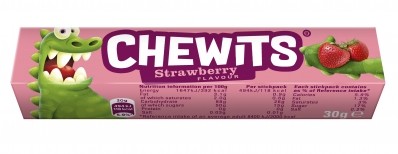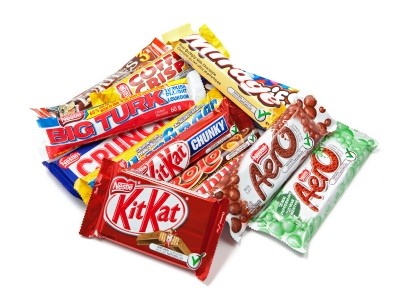Confectionery marketing to kids taboo under WHO’s European Region Nutrient Profile model

The WHO Regional Office for Europe this month released a nutrient profile model in collaboration with member states to help governments and stakeholders define which foods and drinks should not be advertised to children.
It will be left to members states to take action –through statutory or voluntary measures, according to their preferences.
Confectionery would not pass thresholds
Which countries have nutrient profile models?
Of 53 countries in the European region, only Denmark, Ireland, Norway and the UK have nutrient profile models used for marketing restrictions. Outside Europe, countries such as the US, Australia and New Zealand have their own models.
In its nutrient profile model, WHO has set thresholds on sugar, salt and saturated fat for many categories of foods such as non-chocolate breakfast cereals and bread. But it has not established values for chocolate, sugar confectionery and sweet biscuits because it says confections fit a category of foods high in saturated fats, trans-fatty acids and free sugars.
“If you apply a threshold to these products, they would not pass anyway,“ Dr. Joao Breda, programme manager of Nutrition, Physical Activity and Obesity at WHO, told ConfectioneryNews.
“We clearly think this is a tool to help member states to make sure that foods high in salt, sugar and saturated fat are not marketed to children –it is at the disposal of member states to use or adapt it according to national context.”
“There will be room for reformulation of many products, but in this specific case we are talking about marketing to children. With this tool we are not defining a healthy diet, and we are not saying children cannot consume confectionary in moderation in the context of a healthy diet. We are simply responding to the evidence on the impact of food marketing on children and making a proposal for what governments may choose to restrict at the national level”
Healthy diets at a young age
Tarik Jašarević, media relations for the WHO, added: “Confectionery foods are usually high in sugar and often contain saturated fats or trans-fatty acids and low in nutrients that are beneficial for health. Generally, marketing to children of processed foods and food brands contributes to high consumption of processed foods at later age.”
He said that children should instead be exposed to healthy foods such as fruits, vegetables, legumes, whole grains and nuts from a young age.
Jašarević said that food marketing to children was widespread across the world. “Most of this marketing is for foods with a high content of fat, sugar or salt. Evidence also shows that television advertising influences children’s food preferences, purchase requests and consumption patterns and that increasingly children are being exposed to a wide range of other marketing techniques.”
Industry policies
The European confectionery association Caobisco declined our request for comment.
However, the US National Confectioners Association told us it had voluntary principles on marketing to children –available HERE. It added that Ferrero, Hershey, Mars, Mondelēz and Nestlé, had made voluntary commitments on TV marketing to children under the Council of Better Business Bureau’s Children’s Food and Beverage Advertising Initiative.
Some confectioners have had brushes with advertising standards in recent years. In the UK, for example, Cloetta was referred to the advertising Standards authority for an online Chewits game that purportedly made a link between the sweet and real fruit. Mondelēz was also referred to the ad watchdog for a Barny cake bar tv ad that allegedly encouraged poor nutritional habits. However, both companies were found to be compliant with UK ad rules.
Industry commitments
In January, Nestlé updated it kids marketing policy and pledged not to market biscuits, sugar or chocolate confectionery products to children under 12 years. The policy will take effect in December this year.
In June 2014, 25 manufacturers and 25 retailers – including Kellogg, Mondelēz and Nestle - pledged to stop targeted advertising of products “that do not fulfil specific nutrition criteria” to children under 12. Signatory companies were encouraged to establish their own nutrition criteria based on scientific evidence and national and international guidelines.







